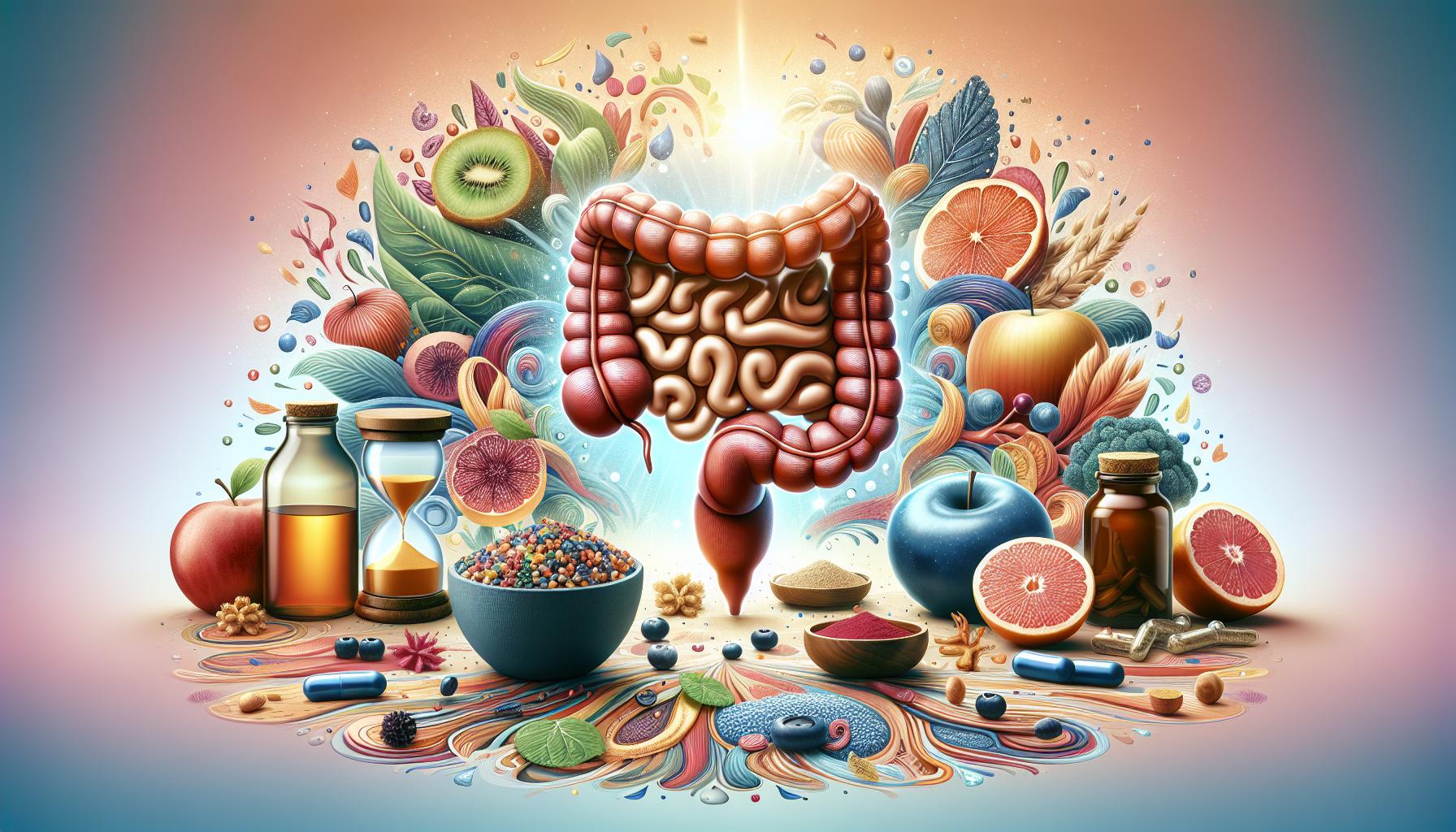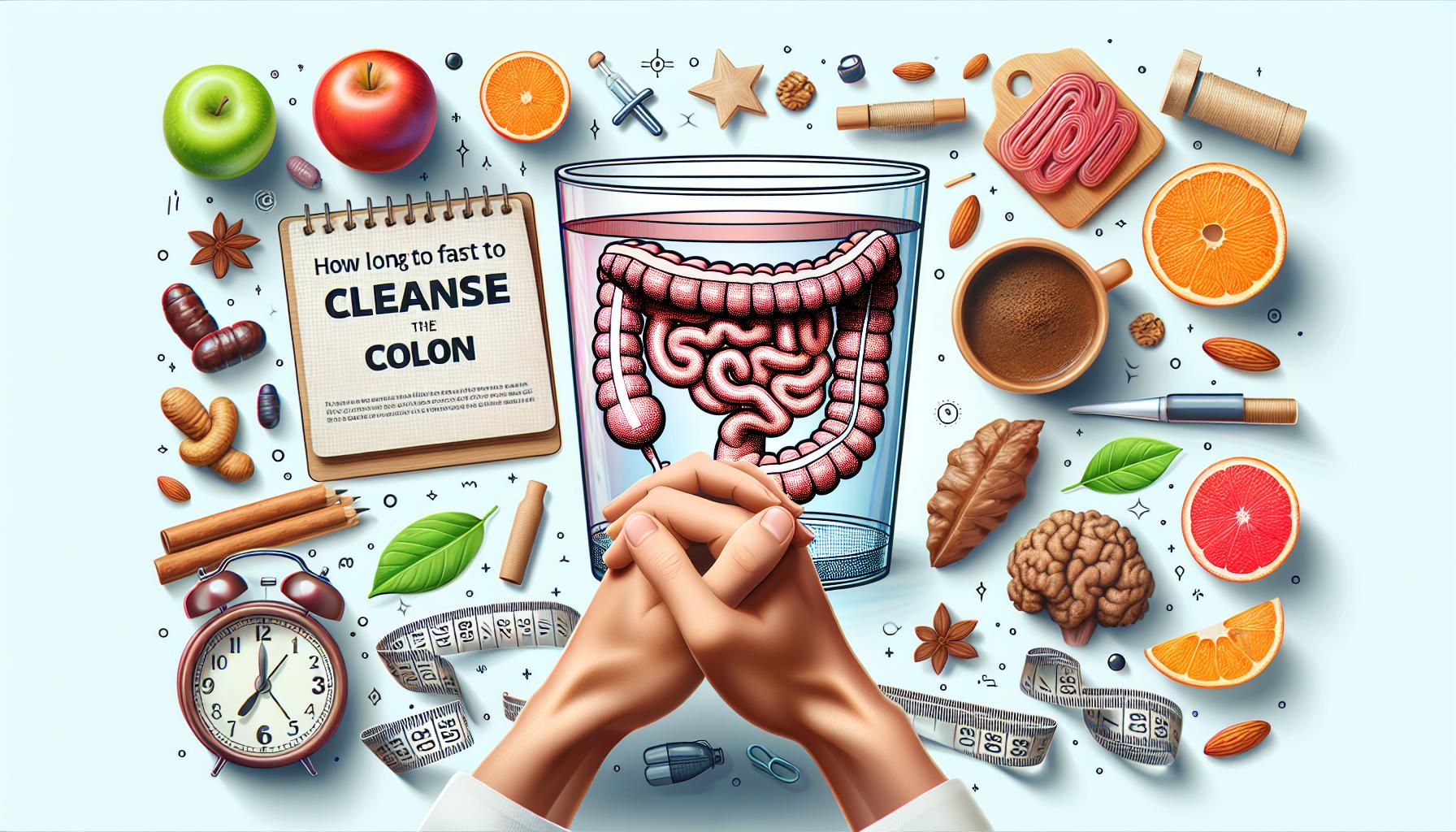
Introduction
How long should one fast to cleanse their colon? It’s an important question that many health enthusiasts ponder. Essentially, to obtain a clean colon, one can fast anywhere between 12 to 72 hours. Nonetheless, this short span is just the tip of the iceberg and there’s so much more to uncover on this topic.
We’ll be casting light on significant aspects like fasting benefits for colon health, potential risks, and tips on pre-fast and post-fast nutrition. With these insights, you’ll be better placed to embark on your next colon-cleansing fast and enjoy its myriad of health benefits.
Understanding Fasting Benefits for Colon Health
When we fast, our body gets the much-needed time to rejuvenate and restore its optimal functions. This includes the often overlooked, but quite important colon. Fasting can work as a fantastic tool to flush out toxins, revitalize your gut microbiota, and heighten the colon’s efficiency.
Fasting: A Natural Detox
While fasting, your body transitions into the process called autophagy – a kind of self-digestive state. The body natural begins breaking down old, unnecessary parts and rejuvenating the systems, including the colon. This natural detox can often be more beneficial than any form of synthetic detoxification.
Precautions of Fasting
While the merits of fasting are aplenty, it’s always a cautious walk. It can be challenging, especially for first-timers or individuals with specific health conditions. Listen to screams of your stomach and pay earnest attention to any severe reaction.
Risks and Considerations
Side effects like lightheadedness, fatigue, or irritability are common during a fast, but sudden severe discomfort is not. If you experience such distress, breaking your fast with a light, easily digestible meal is a wise decision.
Tips for Pre-fast and Post-fast Nutrition
A major portion of your fasting success depends on how you handle your pre-fast and post-fast meals. It’s not just about simply abstaining from food anymore, but more about creating a wholesome, complete fasting experience.
Nourishing your Body the Right Way
When preparing your body for a fast, include fiber-rich and easily digestible foods in your meals. Once you finish your fast, break it gently. Start with light, easily-digestible foods, preferably fruits. This prevents your gut from being overwhelmed and ensures the smooth flow of the digestion process.
Conclusion
While a colon cleanse is a fabulous route to better gut health, it’s not a magic wand or cure-all solution. It’s essential to maintain a balanced diet, regular exercise, and overall healthy living practices. Fasting should not be viewed as a panacea, but as a supplement to a healthy lifestyle.
Frequently Asked Questions
1. Can fasting heal the colon? Fasting can indeed yield numerous benefits for colon health, including a boosted digestion process, detoxification, and rejuvenation of gut microbiota. However, it does not qualify as a standalone treatment for serious gut disorders.
2. What should I eat before a colon cleanse fast? Opt for meals that are rich in fibers, fruits, and easily digestible foods. Avoid heavy, greasy meals before the fast.
3. Will I lose weight during a colon cleanse fast? Weight loss can occur due to temporary water loss, but it should not be the primary motive behind a colon cleanse fast.
4. Can I drink water while fasting for a colon cleanse? Yes, it’s crucial to stay hydrated during the fast.
5. Are there any side effects of a colon cleanse fast? Common side effects may include fatigue, lightheadedness, and irritability. However, if you face severe discomfort, break your fast immediately and seek a medical consultation.


